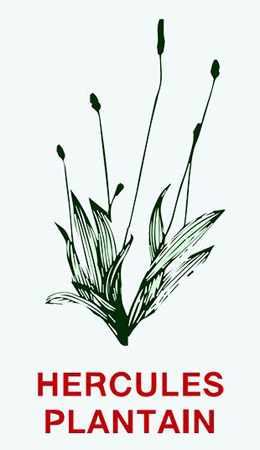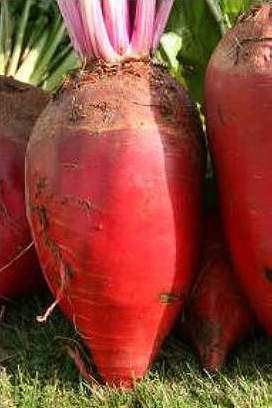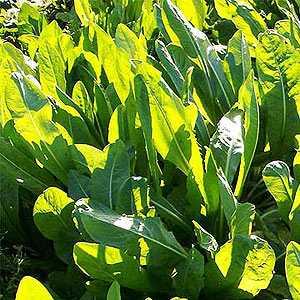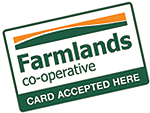 |
|
|
|
Issue 67 / Spring / September 2015
Hi #subname#
 Welcome to the September edition of Specialty Seed's SeedData Newsletter.
Welcome to the September edition of Specialty Seed's SeedData Newsletter.
I trust this finds you all fit and well and I'm sure busy, as the Spring makes always makes us.
......
In this month's Seedata newsletter I'd like to update you on Pacific Seeds, show the latest trial results from Hercules Plantain, introduce a new fodder beet and show you some options for summer feed.
Please browse these topics below:

Pacific Seeds update

Following a recent restructure Pacific Seeds products, within New Zealand, will now be marketed through Canterbury Seeds Ltd a division of the Carr Group.
The good news for our clients is that not a lot will change. All Pacific Seeds products; Maize, forage sorghum, sunflowers etc will be continue to be available as they always have been.
Specialty Seeds have marketed Pacific Seeds products since we started and our clients had great results from their product range.
The current restructure will allow Pacific Seeds to focus on breeding and selection of products for the New Zealand market. Pacific Seeds have a tremendous research and selection pool to work from with direct links to breeding programs in Europe, North
America and Australia and we know the company enjoys working together with their farmer clients to achieve top results for them.
Click here to have a look at the 2015/16 range of Pacific Seeds products.
Download Link: View Pacific Seeds 2015/16 Seed Guide
Contact Link: Contact Specialty Seeds if you have any questions.
Back to top
 Hercules plantain
Hercules plantain

Recently there has been a lot of new information coming out on the role plantain is playing on many farms.
You may have noticed in our August Seedata newsletter we showed a case study from Brooklands Station in the Wairarapa, were Tonic Plantain was playing a major role in their hill country pasture renovation program.
We have noticed many of our clients when talking about plantain will often think of Tonic plantain such has been the success of the marketing of Tonic.
However I feel it's our job to point out, to our clients, there are other cultivars in the market. I recently was sent the latest trial results on Hercules plantain which impressed me and I think will be of interest to you.
Hercules plantain has been on the market for a while now and for the last couple of years the marketing company have conducted some serious research as to where it fits in the market which I found very interesting.
Like all plantains Hercules has a deep and fibrous root system. The benefit of this, is it can get minerals and nutrients from a level deeper than ryegrasses and clovers.
This trait is well known however now also findings that good levels of Anthocyanin's within plantains are also an important part of why plantains have such great animal health benefits.
It also looks like Hercules has a dry matter and seasonal growth pattern worthy of note when compared to Tonic. I think there could be a case of using them both in a mix.
Click on the image on your right or the link below for the trial results for Hercules plantain.
For more information on Hercules please contact us.
Download Link: Click here to see the trial results for Hercules plantain.
Contact Link: Contact Specialty Seeds for any further plantain infromation.
Back to top
 Fortimo fodder beet
Fortimo fodder beet

This season will see us able to supply a limited amount of the new Fortimo fodder beet. Like most of the newer fodder beets Fortimo is suitable for either lifting or grazing in situ as the roots tend to be uniform.
Coming out of the very successful Momont breeding program, Fortimo has red tankard shaped and uniformed bulbs with very disease resistant red veined tops.
Fortimo is a medium to high dry matter fodder beet (14-16%) typically with 40-45% of the bulb above the ground.
This new cultivar has been selected for high overall dry matter yield, high bolting resistance and excellent disease resistance.
Please contact us should you wish to try some of this new and exciting cultivar but as mentioned, we only will have a limited supply.
Contact Link: Contact Specialty Seeds if you have any questions.
Back to top
 Summer Greed feed options
Summer Greed feed options
It's certainly time for us all to start to think about what are the options when a high quality summer feed is required.
Traditionally we have normally suggested either summer turnips or a forage brassica/rape crop, however now chicory can be included as a very real option as well.
Many of you will be using chicory and regard it as a traditional crop but for some particularly in the South Island chicory as a summer option will be a new concept.
Below is a brief summary of what is available to you along with our suggestions on cultivars you should consider. These summer options provide an ideal path to new pasture establishment:
Summer Turnips:
Fast maturing, nutritious and a highly palatable feed sum up summer turnips as a crop.
Summer turnips are high in M/E (typically 12+) and with good management can within 60 - 100 days of sowing often produce yields of between 8 and 12 tonnes dry matter per hectare.
Summer turnips are sown during September/October at 2 kgs per hectare.
The cultivars we sell the most of are either Barkant, Dynamo, Marco (tetraploid) or Rival.
Forage Brassica:
Forage brassica's are crosses between turnips and related leafy brassicas.
This blend results in very quick growing crops normally described as leaf turnips.
Forage brassicas are a very flexible crop to grow as most cultivars have very few days to maturity and are multi grazed sometimes up to 4 times.
Yields of 10 - 12 tonnes DM/ha are often achieved in well managed crops, however they do tend to perform better in better soil types or with irrigation.
Forage brassicas are suitable for all stock types. They are normally sown at 4-5 kgs/hectare and the ones we sell the most of are either Hunter or Pasja 2.
Chicory:
Chicory has over a relatively brief time become the summer feed of choice for many of our farmer clients.

Proven to be an exceptional plant in terms of feed quality and animal performance chicory is suitable for all stock types and has been shown to boost milk production in dairy cows.
When used as a replacement for summer forage crops chicory provides minerals and nutrients that other crops cannot owing to its deep tap root system.
This deep tap root also helps chicory in areas with dry soil types or in summer dry environments.
Other benefits are that chicory is a multi-graze option, doesn't cause stock health issues i.e. grass staggers or facial eczema and don't suffer from insect pests typically found in the above mentioned brassica crops.
Chicory crops are sown between 8-10 kgs per hectare. The cultivars we recommend are Chico, Choice and Puna 2.
For more in depth information on any of the above summer forage programs please contact us.
Contact Link: Contact Specialty Seeds if you have any questions.
Back to top

 As always, we hope this issue has been of some value to you. If you have a comment on this newsletter or anything on our website, please give us a call on our Freephone: 0800 727 8873, send us an email at: mail@specseed.co.nz.
Kind Regards

Stephen Finch & David Percival
Specialty Seeds - New Zealand
|
|
|
|
 |
|
|

|
If you are having trouble viewing this email, .
If you would like to be removed from this newsletter please click here to
|
